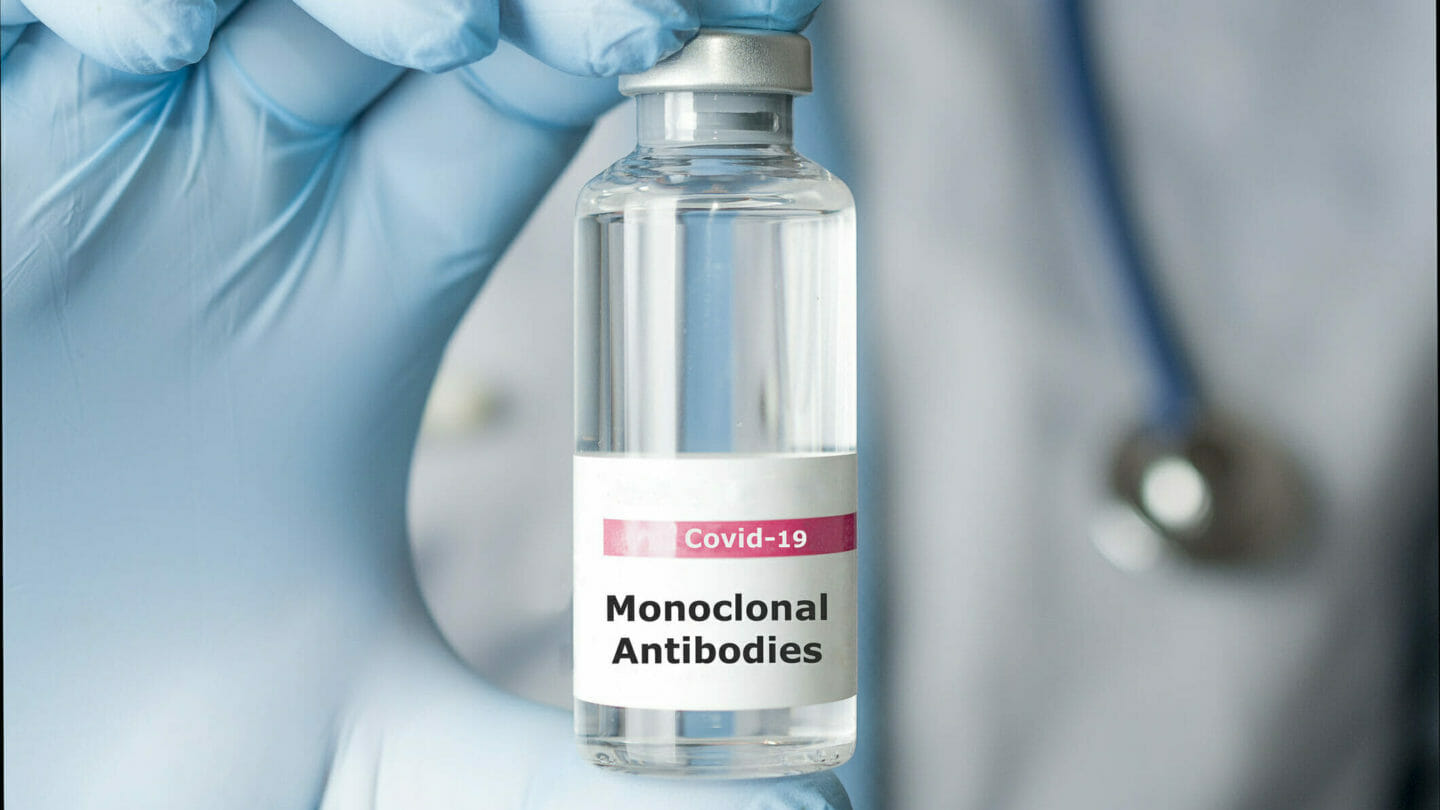
Monoclonal antibodies (mAbs), a mainstay treatment for COVID-19 patients during the early pandemic, were highly effective in preventing death in at-risk patients, according to a two-year study at a large healthcare system.
Investigators compared outcomes in mAb-treated patients with patients who did not receive mAbs. Study participants included high-risk outpatients who were eligible for mAb treatment under any emergency use authorization. All had a positive SARS-CoV-2 test result between December 2020 and August 2022.
Participants received single-dose intravenous mAb treatment with either bamlanivimab, bamlanivimab–etesevimab, sotrovimab, bebtelovimab or intravenous or subcutaneous casirivimab–imdevimab.
Risk of death, hospitalization cut by 39%
In the brief time mAbs remained available — from late 2020 to November 2022 — treatment within two days of infection was linked to a 39% lower risk for hospitalization or death at 28 days, lead author Kevin Kip, PhD, of the University of Pittsburgh Medical Center and colleagues found. The risk for hospitalization or death at 28 days was 4.6% in 2,571 treated patients and 7.6% in 5,135 nontreated control patients, they reported.
The ever-changing lineup of new mAbs treatments required much juggling by clinicians, including long-term care clinicians. Authorizations for the variant-targeting drugs were rescinded, one after another, as new SARS-CoV-2 subvariants arose and rendered them ineffective. But the efforts were worth it, Kip said in a statement.
“The virus was a moving target, and, for two years, monoclonal antibodies were approved, revoked, sometimes reauthorized and sometimes scarce,” Kip said. By using a large patient database to track efficacy, “we are finally able to conclude that pushing through all these challenges unequivocally saved lives and prevented hospitalizations.”
A worthwhile investment
Once the omicron variant reared its head, the risk of death and hospitalization had fallen in the general population and mAbs had less treatment benefit overall. But mAbs treatment remained clinically meaningful for patients at risk of severe outcomes until the last one was finally deauthorized, according to co-author Erin McCreary, PharmD, UPMC director of infectious diseases improvement and clinical research innovation.
Should any more deadly variants arise in the future, “our real-world data give reassurance that investing in the infrastructure and healthcare worker knowledge to quickly give antibody treatments keeps people in the communities we serve alive and out of the hospital,” she said.
Full findings were published in the Annals of Internal Medicine.
Related articles:
Use of deauthorized COVID antibody treatments widespread in early 2022: study
Rising omicron variants will likely defeat current mABs treatments: study (Dec. 2022)
FDA OKs first injectable antibody drug to prevent COVID-19 in high-risk patients (Evusheld 2021)
FDA: Evusheld may be less effective against latest COVID variants




